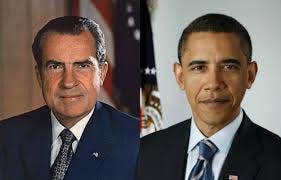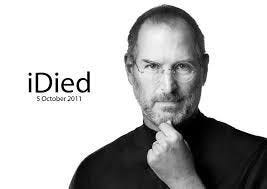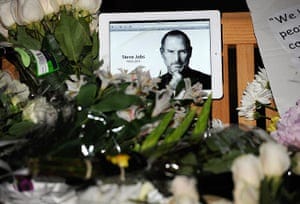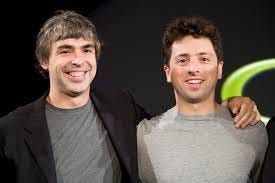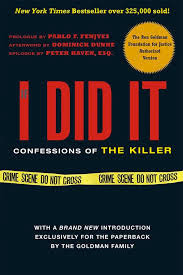"DON'T BE EVIL." Part 1
Why did Google quietly drop their "don't be evil" motto in early 2015? Are they planning on doing evil? What other reason could they possibly have for nixing it?
1. On Today’s Tech Bros & CEOs Being Heralded as the Future Fixers of Our World
If your organization’s motto is no longer “Don’t Be Evil,” does that mean is evil now afoot or is Alphabet (Google’s parent company) merely protecting itself from lawsuits in case one of its self-driving cars swerve to avoid a fire hydrant the on-board computer mistook for a child and barrels right into an actual child, killing him instantly? Are they merely trying to protect themselves from future litigation? Or is there a more sinister reason for getting rid of their famously chill and benign motto? Are the men and women and those who identify otherwise scurrying around Alphabet HQ working on top secret government or military projects that may involve the odd act of evil and depravity? If not, what are they up to do?
I’ve been working for weeks on this article about how Google discreetly scrapped its famous “don’t be evil”.¹ According to Gizmodo, Google jettisoned “don’t be evil” sometime in April or May of 2018, but the tagline was already on its way out when Google was reorganized under the Alphabet umbrella in 2015. As Gizmodo reports:
“Don’t be evil” has been part of the company’s corporate code of conduct since 2000. When Google was reorganized under a new parent company, Alphabet, in 2015, Alphabet assumed a slightly adjusted version of the motto, “do the right thing.” However, Google retained its original “don’t be evil” language until the past several weeks. The phrase has been deeply incorporated into Google’s company culture—so much so that a version of the phrase has served as the wifi password on the shuttles that Google uses to ferry its employees to its Mountain View headquarters, sources told Gizmodo.
How did this not become more of a deal than it was? Wouldn’t you be alarmed if your doctor casually said to you “oh, by the way…the Hippocratic Oath has been updated in order to align more closely with the values of our contemporary medical culture. Doctors need no longer promise to ‘do no harm.’ It’s just tacitly assumed we will do no harm. Isn’t that great? Welp…see you next year!” This would alarm you, would it not? It would alarm me.
Getting rid of a motto is not a passive act. It means something to throw something away. And shit-canning a motto as blatantly prescriptive as “don’t be evil” can only mean that Google, or its parent company Alphabet, is either allowing for the possibility of something evil to occur or is actively planning something evil. That last sentence sounds so ridiculous I’m actually picturing Dr. Evil…but remember: Back in 2010, when M.I.A. released her song “The Message,” many critics mocked the lyrics, especially the "connected to the Google/connected to the government” couplet. Three years later, when the scope of the NSA’s surveillance on American citizens was revealed, prompting even Obama supporters to wonder aloud if he might be the sneakiest President since Nixon, M.I.A. was publicly vindicated and her critics apologized to her.
Being right did not cheer M.I.A. up. She hadn’t wanted to be right. She wasn’t feeling exactly triumphant about living in a world where your television listens to you ad your phone spies on you (almost every singe flashlight app out there was developed in Mainland China). I’m not trying to get you to reach for the nearest tinfoil hat, but downloading Tik Tok and flashlight apps from countries as untrustworthy as China is yer another major security and privacy breach the tech bros have no intention of addressing. There are 1.5 billion people living in China. You can bet your ass that Apple wants to put the latest iPhone in 1.5 billion hands.
Google is not allowed in China, but Apple is. Why do you suppose that is? In simplified traditional Chinese characters, “don’t be evil” looks like this”
While “be evil” looks like this:
The two sentences don’t look even remotely similar. So maybe China knows something about Google/Alphabet that we don’t.
Regardless for the reason for Google’s banishment from a country that actually has a social credit system, an idea so horrifyingly Orwellian and outlandish that the Black Mirror episode depicting a society where everyone is either upgraded or downgraded depending on how well each encounter is received was critically derided as ludicrous by The New York Post, needlessly protracted in the Irish Independent, and dismissed as disappointingly predictable by both The A.V. Club and Collide. It is significant, however, and worth nothing, that the negative reviews skewed heavily male, and of these males, most worked for technology magazines or moonlighted, like Canadaland’s Jesse Brown, on an asinine app where users can put dog ears where their normal ears are supposed to be,
The casual dismissiveness around Google dropping their famously benign mission statement feels eerily similar to the backlash against M.I.A. for having the sheer audacity to criticize Google with “The Message.” In 2010 Google was still only a search engine that allowed users to find new restaurants and old porn clips. What prompted such utter devotion to it? Its defenders were (and are) ferocious. What prompts such brazen fandom of tech CEOs? What is up with the cult of Steve Jobs? That’s the guy who gets not one but two fawning Hollywood biopics? (The Kutcher one is particularly soppy and panegyrical.) The other on has its moments, even if it was partially spoiled by a remark a friend made to me about Michael Fassbender just before heading into the theatre: “that guy has way too many teeth in his mouth.” I can’t unsee it now.
His teeth are all I notice now. Millennia from now, when our once-great cities have crumbled and humans are extinct because some jackass country got peeved and just started sending nukes everywhere, aliens will land on Earth and colonize it. One day, a young alien archaeologist will find Michael Fassbender’s teeth and bring it to his thesis advisor and professor, The professor will surmise, from the size of Fassbender’s enormous teeth, that homo sapiens must have been forty feet tall.
But no more about Fassbender. This is about Steve Jobs, who Fassbender merely happened to play. The less you read about about the 2013 Ashton Kutcher movie Jobs the better, but the Steve Jobs film directed by Danny Boyle1 did a fine job on an uncreatively titled film. Its title? Steve Jobs. What else could they have called it? Apples and Oranges? To really drive the symbolism home by giving whoever plays Bill Gates a hideously orange spray-on tan)?) Fassbender was serviceable as a corporate tyrant but the performance Boyle got out of Seth Rogen is the best thing about the movie. By far.
Steve Jobs is not a movie I’ll ever watch again unless I’m trapped in a cabin a New Hampshire with nothing to do except watch one of my two DVD copies of Mr Magorium’s Wonder Emporium a la Walter White in his New Hampshire hideout, a hideout that would have become his tomb if not White’s final last brilliant idea regarding how to get the money he had made for his family into his family member’s bank accounts.
By the way, Robert Forster’s character saying “I’m not much of movie guy,” after Walt balks at the isolated cabin’s paltry selection of DVDs is a great inside joke. His “I’m not much of a movie guy” quip is a sly wink from the Breaking Bad writers room to those in-the-know about Forster’s vast filmography starting with Reflections in a Golden Eye and Medium Cool days all the up to his final film to be released in his lifetime: El Camino: A Breaking Bad Movie. Robert Forster appeared in a film every year from 1967 to 2021. He was very much “a movie guy.”2
2. The Cult of Steve Jobs
But back to Steve Jobs. I was far more devastated when Walter White (a fictional character who once bombed a nursing home and killed ten imprisoned men in three different prisons in a two-minute window) died than when Steve Jobs died. I didn’t rejoice in the streets but I sure as hell wasn’t sad when Jobs joined the great beyond.
You know who was sad though? Thousands upon thousands off tech lemmings who bought and left flowers outside Apple Stores around the world. Here’s an Apple Store in New York City a day after Steve Jobs died.
Here’s one in Rio de Janerio.
Here’s a candlelight vigil outside an Apple Store in Seattle.
When I read the words “Seattle Candelight Vigil” I think of Kurt Cobain, not some spiteful bully who once tossed an early prototype of these iPhone into a fishtank in his office and yelled at his engineers.
“See those bubbles!? That means there’s air in there. Make it smaller and DO IT RIGHT THIS TIME!”
Jobss often bawled at co-workers in this manner. Like a petulant six-year-old. Naturally, the press ate this anecdote right up as if it was proof of his genius. His questing nature and relentless drive. Never mind that his engineers had worked 12-14 hours for 6 days a week for over a year to build that prototype. Jobs took a cursory three-second glance at it and dunked it into his office aquarium.
The grief over Princess Diana’s death made sense to me because she actually seemed like a nice person. I think Diana was born good, just as believe Jobs was born bad. It’s the biological equivalent of crossing wires. Jobs was a good leader born to boss people around, deflect the blame and duck responsibility when things went sideways and always dash in at the last moment to “save Apple.” Steve Jobs did not save Apple. Bill Gates did. Steve Jobs could not rite a line of code, He did not build a single Apple computer. Steve Wozniak did.
Jobs didn’t swoop in from on high and save Apple from bankruptcy when it was really close to insolvency. It was Bill Gates and his $150 million injection of cash into Apple’s coffers on April 6, 1997 that saved the company, a gesture Jobs showed his appreciation for by making it his personal goal to overtake as much of Microsoft’s market share as he could.
This is eerily similar to the story of Dirk Willems, a sixteenth century Dutch Anabaptist minister imprisoned for his beliefs who escaped prison but turned back when one of his pursuers fell through frozen river ice. Willems saved the guards life, an act of mercy the guard repaid by re-arresting Willems and escorting him directly to the site of his execution, where he was burned at the stake. It was a particularly winy day and the fire kept going out, prolonging Willems agony. The etching below depicting Dirk Willems saving the guard is from the 1685 edition of Martyrs Mirror, a Dutch publication that collects anecdotes of Christian martyrs.
In no way am I comparing Bill Gates to Dirk Willems. Gates is not, and never has been, a martyr. I’m only saying that Gates singlehandedly saving Apple just before it declared bankruptcy came back to haunt him when Apple became the default “cool” computer, tablet, and phone in the mid-2000s.
Suddenly that silver glowing Apple was in every coffee shop and classroom. I once overheard a trio of women at a bar confiding to each other that if they gave their number to a guy they met on Tinder and his text bubbles were blue (meaning he had an Android, not an iPhone), they wouldn’t even bother replying. I was shocked, but my girlfriend at the time told me that this is not uncommon behavior. Gross, but I suppose it’s just a symptom of a larger problem, which is people unquestioningly trusting (and even worshipping) tech companies.
Steve Jobs denied paternity of his own daughter Lisa for years. He continued to deny paternity even after naming a computer nobody bought, after her. Lisa was a desktop computer developed by Apple, produced from January 1983 to August 1986.
The mother of his child was on food stamps while he had millions in his checking account. He publicly slut-shamed her after the state of California forced him to take a DNA test whose results showed that Jobs was the father. Naturally, Jobs disputed the results, and in 1982 told a Time Magazine reporter that “28% of the male population of the United States could be the father.”
During this time, he was paying just $500 a month in child support despite being a millionaire. He treated Steve Wozniak, the true brains and talent behind Apple, as his own personal slave and punching bag. According to his Wikipedia page, Steve Jobs was six feet tall. I didn’t know shit stacked that high. (That’s a cheap joke but hey…Jobs was a cheap man.)
If this post sounds strident, it’s because it is is. I remain truly baffled by the global outpouring of grief I saw when that…jackal died. He was from top to bottom a terrible human being. And people were mourning him like he’d been a saint among men while alive. The man made expensive computers and phones (actually, he didn’t even “make” them…he famously did not know how to code…he just screamed at and belittled engineers until his products were finally made to his exact specifications). Steve Jobs was a salesman and nothing else. He never built a computer. He didn’t discover penicillin. He didn’t walk on the moon. He sold overpriced consumer electronics. And for this he is one of the most famous men in human history.
3. “They say it got smart. Decided our fate in a nanosecond.”
Larry Page and Sergey Brin enjoy a lesser level of fame and worship than Steve Jobs . And they look so harmless! Cuddly, even. Perhaps this is why we felt like we should trust them? Just two ol’ college buddies who struck it rich. We can trust them not to take over the world, right? RIGHT? Such nice looking fellas would never try to create a super-intelligent cyborg surrounded by living tissue, right? RIGHT?
No A.I. researcher has been able to explain what might happen if an Artificial Intelligence programmed to stop and/or avoid human suffering learns about the Human Condition. Learns what Buddhist’s have known for over 4000 years. If A.I. is programmed to Do No Harm to humans, what happens when they learn that to be human is to suffer? What then?
In 2003, Swedish philosopher Nick Bostrom published his famous Paperclip Universe thought experiment: An A.I. machine has been designed and programmed to manufacture paperclips.² Bostrom deliberately chose a paperclip for his scenario, because a paperclip is an innocuous and rather harmless item.
Bostrom's thought experiment goes like this: suppose that someone programs and switches on an AI that has the goal of producing paperclips. The AI is given the ability to learn, so that it can invent ways to achieve its goal better. As the AI is super-intelligent, if there is a way of turning something into paperclips, it will find it. It will want to secure resources for that purpose. The AI is single-minded and more ingenious than any person, so it will appropriate resources from all other activities. Soon, the world will be inundated with paperclips.
It gets worse. We might want to stop this AI. But it is single-minded and would realize that our switching it off would subvert its goal. Consequently, the AI would become focused on its own survival. It is fighting humans for resources, but now it will want to fight humans because they are a threat to its prime directive, which is make paperclips (think The Terminator).
The concern isn’t about paperclips per se. Instead it is that, at some point, switching on an AI may lead to destruction of everything, and that this destruction would both be easy and arise from a trivial or innocuous initial intent.
Worst-case scenario: A.I. becomes smarter than humans in the same way that humans are smarter than apes. The goal of making paperclips initially seems banal and harmless, but the AI uses its superintelligence to easily gain a strategic advantage over the human race and effectively takes over the world, as taking over the world is the best way to maximize its goal of building paperclips. The AI does not allow humans to shut it down or slow it down once it has a strategic advantage, as that would interfere with its goal of building as many paperclips as possible. According to Bostrom, the paperclips itself isn’t significant. It could be any item or programmed demand.:
“It doesn't have to be paper clips. It could be anything. But if you give an artificial intelligence an explicit goal - like maximizing the number of paper clips in the world - and that artificial intelligence has gotten smart enough to the point where it is capable of inventing its own super-technologies and building its own manufacturing plants, then, well, be careful what you wish for.”
Best-case scenario: all machines with Artificial Intelligence (self-flying planes self-driving cars, etc) have a manual override, an off switch, just in case the machines decide we’d be better off (or, at least, suffer less) dead. An A.I learning program reads Better To Never Have Been been anti-natalist author David Benatar. This seemingly innocuous paperclip goal could very well lead to human extinction, as our bodies are made of matter and so too are paperclips. The words of Kyle Reese from Terminator spring to mind:
Kyle Reese: There was a nuclear war. A few years from now, all this, this whole place, everything, it’s gone. Just gone. There were survivors. Here, there. Nobody even knew who started it. It was the machines, Sarah.
Sarah Connor: I don't understand.
Kyle Reese: Defense network computers. New... powerful... hooked into everything, trusted to run it all. They say it got smart, a new order of intelligence. Then it saw all people as a threat, not just the ones on the other side. They decided our fate in a microsecond: extermination.
Any company currently as balls deep into A.I. research and development as Google is should worry people. Google deleting their “don’t be evil” motto six years ago should have given people pause. But it didn’t. The lack of in-depth reporting on this was a journalistic lapse eclipsed in magnitude only by the spotty reporting on O.J. Simpson’s 2007 book If I Did It, a book in which he literally describes the double homicide he got away with.
Oh, there were news items about If I Did It. But thee stories didn’t elicit even one tenth of the interest Simpson’s televised murder trial had. In proportion to the story’s merit as a blatant confession to double murder, a confession of historic import, it received almost no notice whatsoever. I feel the same thing about Larry and Sergey shit-canning their feel-good, vaguely utopian hippie motto.
Look at that cover. The word “if” appears in 6-point font while I DID IT is splayed across the width of the entire cover in enormous blood red letters.
Google dropping their “don’t be evil” motto was just slightly less newsworthy, but some people don’t even know they dripped it. This is worrying to me. Google has amassed more money, power and (crucially) information than any other organization in human history. The fact that they are no longer beholden to the maxim “don’t be evil” doesn’t necessarily mean that their new maxim is “Be Evil” but the change does beg the question: why get rid of the motto at all? What harm was the old motto doing that necessitated its removal?
How are we, the mere mortal consumers (or “users”...a term tech people say in the same tone of voice that most people say “idiots”) supposed to take it? At the very least, it means that Google is tacitly allowing for the fact that some of their projects (the ones involving A.I., which many of the world’s leading thinkers believe will lead to humanity’s demise) will cause or lead to evil things. At the very worst, it means Google (or Alphabet) are actively engaging in evil at this very moment.
Boyle also directed Trainspotting (1996), 28 Days Later (2002), Sunshine (2007), 127 Hours (2010) and an honest-to-goodness great sequel in T2: Trainspotting (2017).
Forster was also very much a TV guy, appearing on 60 different shows between 1957 and 2020, including two episodes of Magnum P.I. in 1985, 16 episodes on Banyon from 1971-73, 13 episodes and one made-for-television film playing the titular Deputy in Nakia in 1974. Two episodes of Walker, Texas Ranger, one in 1995 and one in 1997. He was in Desperate Housewives for a one-off episode in 2007, another one-off on The Simpsons in 2008, and another one-off on CSI: NY in 2011. His character was one of the few who emerged unscathed from Breaking Bad (2013) in order to appear in both Better Call Saul (2020) and El Camino (2019).





